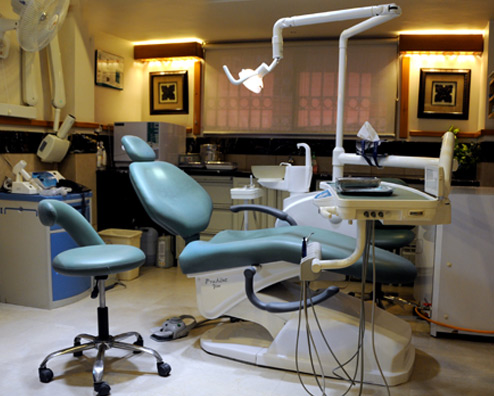- Web
- Feb 15, 2026
Unethical practices plague Karachi hospitals, clinics
-

- Web Desk
- Jan 15, 2024

By Syed Sibte Hassan Rizvi
KARACHI: A recent incident with a patient has revealed the extent of unethical practices in the city’s private clinics and hospitals, where doctors prescribe costly and unnecessary treatments, sell substandard medications, and recommend alternative therapies.
Muhammad Hussain, a 34-year-old resident of Karachi, was shocked to discover that he was prescribed a costly and unnecessary treatment by a private clinic in the city. He shared his story with the media to expose the unethical practices of the clinic and its doctor.
Hussain visited the clinic after finding a doctor through a medical application. The doctor checked his blood pressure and suggested that he needed an H. pylori test, which could be done at the clinic’s diagnostic lab. The doctor also offered him a discount for the test.
Hussain agreed to take the test, along with a CBC test, and waited for two hours to get the results. The doctor then told him that he had H. pylori infection in his blood and prescribed him a three-month course of medications. He asked him to buy the medicines from the clinic’s pharmacy counter.
Hussain was stunned to learn that the medicines cost around 11,000 rupees. He made an excuse and left the clinic. HUssain then contacted a doctor friend who told him that the blood test for H. pylori was not reliable and advised him to take a stool test instead. He also revealed that the medicines prescribed by the clinic were from local pharmaceutical companies.
Hussain reported the incident to the Sindh Health Care Commission (SHCC), which launched an investigation. The commission found out that the doctor’s licence had expired and issued him a warning to practice as a general physician only. The commission also noticed that the prescription showed the doctor as an expert in various fields, such as cardiology, gastroenterology, hepatology, nephrology, urology, and neuromuscular disorders.
The commission further discovered that the doctor was working in a major private hospital in Karachi, despite his lack of qualifications. The prescription was also sent to Dr. Omar Sultan, a medicine specialist at Jinnah Hospital, who expressed his concern over the prescribed medications. He said that the medicines were unfamiliar and could be alternatives to the standard drugs.
Dr Shah Nawaz, a gastroenterologist at a private clinic, said that the blood test for H. pylori did not distinguish between new and old infections and that the symptoms of the patient should be considered for the treatment.
Hussain’s case highlights the common problem of unethical practices in private clinics and hospitals in Karachi and other cities. Even government hospitals are not immune from such malpractices. Sometimes, doctors refuse to treat patients in emergency situations and refer them to private hospitals for a commission.
An employee of a private hospital in Nazimabad confirmed that many cases from Abbasi Hospital were referred to their hospital for this reason. He said that this referral scheme was motivated by the volume of cases and the financial benefit.
The SHCC, which is responsible for regulating the health care sector in the province, had initiated the Authentic Name mobile application to provide information about registered clinics and hospitals to the public. However, the application’s effectiveness is limited, as many doctors are found to be engaging in unethical practices, even if they are registered with the SHCC or the relevant councils.
Dr. Adnan Rizvi, Director of the Drug Testing Laboratory in Sindh, said that while a doctor can sell medications, creating a pharmacy and selling medications under their own name is unethical, although there is no specific law against it. He said that the authenticity of the doctor’s assets and activities must be investigated thoroughly. He added that many doctors operate pharmacies under someone else’s name to avoid scrutiny during inspections by drug inspectors. He also pointed out that the recent Health Care Industry and Health Professionals’ Ethical Marketing Rules 2021 require any steps taken between the health care industry and health professionals to be documented.
Adnan Afaq, a citizen in Karachi, expressed his distress over the reliance on online reviews by doctors. He said that doctors often Google medications and prescribe them based on search results. He said that while self-medication is not a recommended practice, there is a level of trust involved when patients opt to procure medications directly from doctors.
Dr. Qaiser Sajjad, the former General Secretary of the Pakistan Medical Association, stated that the government is taking substantial steps to provide incentives to doctors from pharmaceutical companies. However, he said that despite new regulations, pharmaceutical companies are bound to provide detailed facilities to doctors. He said that the unethical practices continue and that it is crucial for pharmaceutical companies to play their part in ensuring ethical practices. He praised Agha Khan University Hospital for addressing the issue through informative, awareness-raising, and educational videos, and hoped that this would bring positive change to society.




